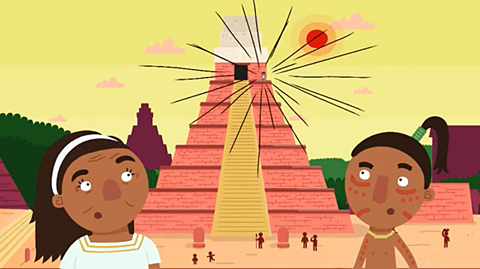Why were there two Maya calendars?
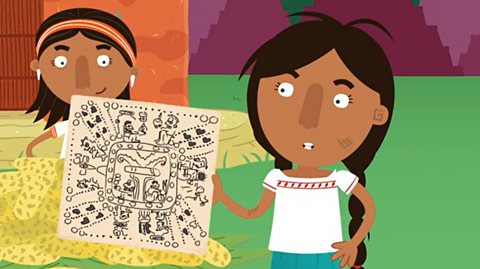
The Tzolkin calendar was also known as the Sacred calendar.
- It was 260 days long and it was used to keep track of religious ceremonies.
- Each day has its own unique name.
- It is still observed by some Maya people today.
The Haab calendar had 365 days. It could be used alongside the Tzolkin calendar to form a calendar wheel.
The Maya followed the movements of the sun, moon, stars and planets to create their calendars.
Calendars could include Wayeb days which were days of reflection where people liked to stay at home and prepare to receive good fortune.

How did the Maya travel?
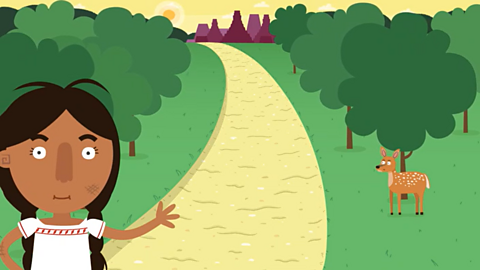
Raised roads called sacbeob were built in the rainforest to make travelling easier.
When it rained it could be difficult to travel through the wet and muddy jungle floor.
- Sacbeob were paved and built a few inches above the ground so the Maya could travel whatever the weather and conditions.
- These roadways could be used for religious pilgrimages, to transport goods and connect cities.
- The longest known sacbeob is called łŰ˛ąłćłÜ˛Ô˛ą-°ä´Ç˛úá. It runs 62 miles (100km) from Maya cities Cobá to Yaxuna.

How did the Maya carry goods?
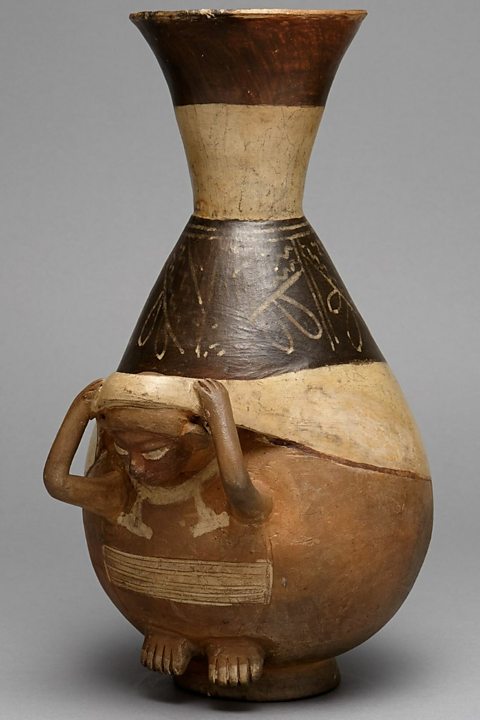
Maya people did not use vehicles with wheels to move things. Instead they carried loads on their backs.
- A tumpline was a carrying device used to carry heavy loads on someone’s back.
- It allowed people to carry up to 125 pounds (around 57kg).
- The tumpline had a strap which went round the forehead.

What was a metate?
A metate is a stone tool that would have been used for grinding maize to make tortillas.
The maize would have been placed on the flat or concave surfaced metate and ground using the a stone called a mano. Women would have been responsible for doing this.
This tool is still used by some Maya today, as can be seen in the photograph below.
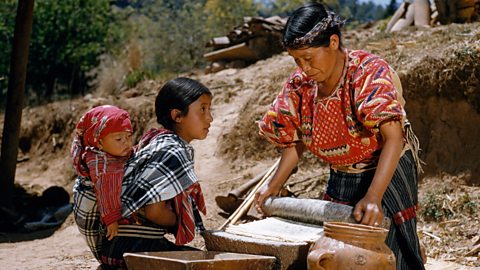
Activities
Activity 1: Quiz – Maya inventions
Activity 2: History Explorer game
Play this game to test your knowledge and learn even more facts about the ancient Maya.
History Explorer: Secrets through time
History Explorer: Secrets through time: KS2 History
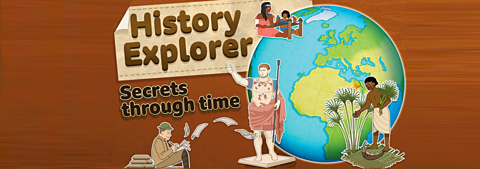
Bitesize Primary games. gameBitesize Primary games
Play fun and educational primary games in science, maths, English, history, geography, art, computing and modern languages.

More on Maya Civilisation
Find out more by working through a topic
- count8 of 20
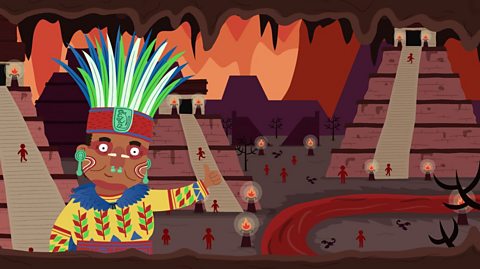
- count9 of 20
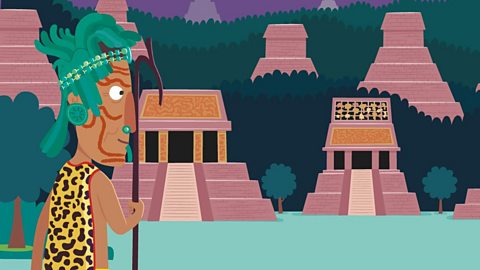
- count10 of 20
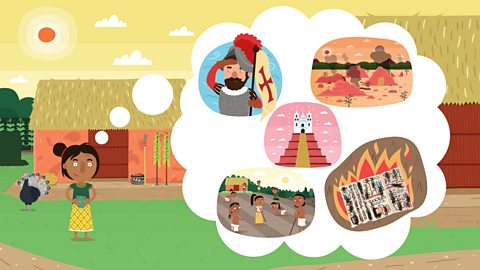
- count11 of 20
